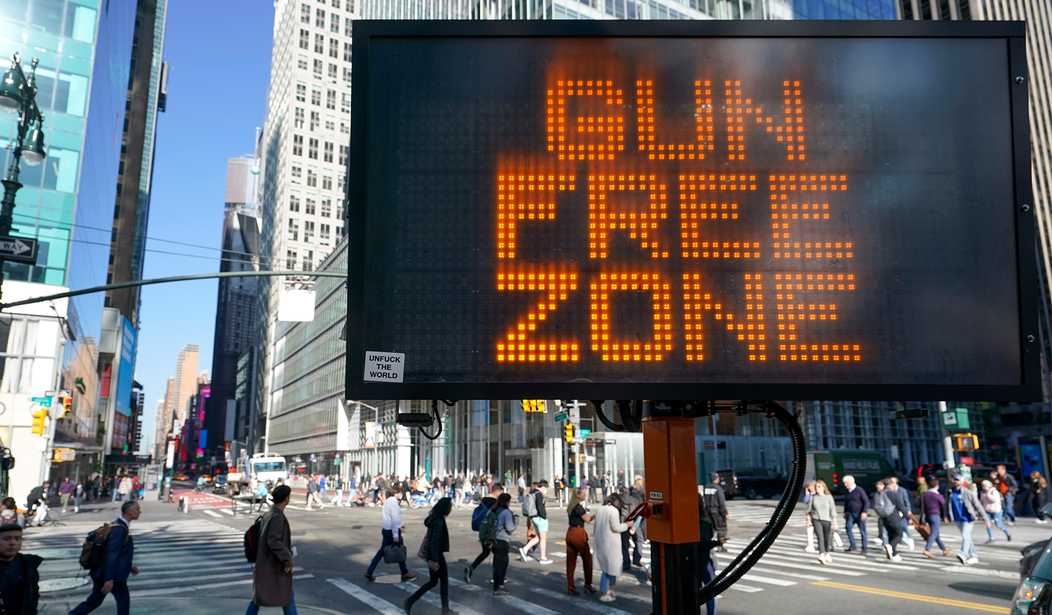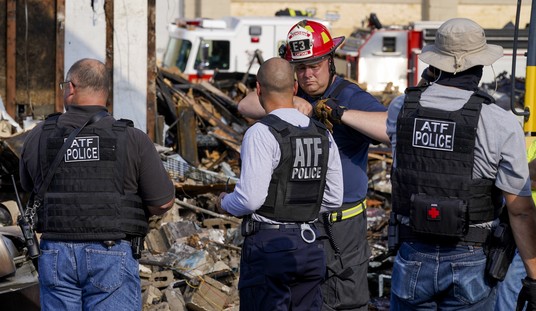A three-judge panel on the Third Circuit Court of Appeals asked wide-ranging questions regarding New Jersey’s post-Bruen carry regime in a hearing in federal court in Philadelphia on Wednesday afternoon, peppering attorneys for the state and gun owners with queries about what makes “sensitive spaces” sensitive, whether guns can be banned by default on private property, and if requiring concealed carry applicants to provide multiple character witnesses is allowable under Bruen or if that opens the door to the same type of broad discretion that the Supreme Court has said is impermissible.
The three-judge panel, comprised of one appointee by Barack Obama, Donald Trump, and Joe Biden, asked tough questions of both sides, but I did get the sense that at least two judges on the panel are sympathetic to many of the state’s recently enacted “gun-free zones” and post-Bruen licensing requirements based on the back-and-forth between the two Democrat-appointed judges and the plaintiffs’ attorneys.
Take the issue of New Jersey’s requirement that concealed carry applicants must provide licensing authorities with a list of four individuals that can attest to their good moral character. The panel did pose a good question to the state’s attorney; highlighted by the Firearms Policy Coalition on X/Twitter.
A judge has now pivoted to talking about permitting and asks about the 4 reputable references requirement.
The judge then asks the state which other Constitutional right requires such a requirement.
The State claims that no other right can harm others when exercised.
— Firearms Policy Coalition (@gunpolicy) October 25, 2023
The state’s response is laughably wrong. Speech can absolutely be harmful, or else the Supreme Court wouldn’t have decided that the First Amendment doesn’t protect “fighting words” that are meant to incite violence. Your freedom of expression can cross a boundary between something that’s edgy yet has artistic value to something that is obscene and harmful to others, like child pornography. Yet no state in the Union restricts anyone’s First Amendment freedom of speech and expression until they provide non-relatives who will attest to their good moral character.
When the attorney for the Siegal plaintiffs was asked about the character reference mandate, the judges seemed to do a much deeper dive than they did when the state had the podium. They asked why those character references shouldn’t be viewed as a historical analogue to 19th-century surety laws, and questioned why they shouldn’t just be deemed part of a normal background check.
The Seigal attorney pointed out that the “good cause” requirement that was struck down by the Supreme Court was also “just part of a normal background check”, but that didn’t stop the Court from determining that it built in too much discretion… just like the state’s character reference mandate does. As for the comparison to surety laws, the plaintiffs’ attorney argued that surety laws were imposed on some individuals, not everyone exercising their right to carry, and didn’t typically forbid even those deemed dangerous from bearing arms; instead subjecting them to forking over cash in the form of a surety bond beforehand.
One other interesting line of questioning involved the “tradition” of gun ownership and gun regulations. How are judges supposed to determine if a regulation fits within a tradition, what time period should judges focus on, and how many similar laws must be found in the historical record to amount to a “tradition”, as opposed to outlier statutes.
The judge has now asked if there is one tradition or do we look at the different States that may have been different than the rest.
Our lawyer explains that even Heller answers these questions and that the overall national tradition is what needs to be focused on. He then states…
— Firearms Policy Coalition (@gunpolicy) October 25, 2023
They have gone back to asking if the tradition is at the founding or the ratification of the 14th amendment in 1868.
Our lawyers say, in this case, it is irrelevant because all of the laws cited came to be well after 1868.
A judge asks if Bruen is saying the court must reject…
— Firearms Policy Coalition (@gunpolicy) October 25, 2023
The FPC’s attorney argued that the post-Civil War south, for instance, is a poor choice to determine a “national tradition” of gun ownership, even if we’re looking at laws that were passed around the time the Fourteenth Amendment was ratified, because many of those laws were subjectively enforced against a particular class of citizens (namely, freed slaves and Republican voters) even if they were written to appear objective in theory. Coincidentally (or not), most of the 19th-century statutes cited by New Jersey were imposed by southern states in the immediate aftermath of the Civil War or the Jim Crow era that followed the end of Reconstruction, because most northern states didn’t impose those same restrictions on lawful gun owners.
Bearing Arms contributor John Petrolino was in the courtroom for the oral arguments and will have a first-hand report of his own in the coming days, and I’d encourage you to read the entire FPC thread I cited above. Overall, the judges on the panel seemed to be sincerely wrestling with the constitutional issues posed by New Jersey’s post-Bruen restrictions on the right to keep and bear arms, though I again suspect that the Democratic-appointed judges are overly sympathetic to New Jersey’s cause.
It’s always difficult to predict what an appellate court (or a district judge, for that matter) is going to do based solely on the questions posed during oral arguments, but if I had to guess I’d say a split decision is the most likely outcome, especially given the scope of the statutes being challenged. Remember, we’re not just talking about “sensitive places”, but insurance mandates for gun owners, mandatory fees that are paid to a crime victim’s fund, and onerous and burdensome requirements for all carry applicants.
I could see the Third Circuit panel wind up allowing some of New Jersey’s “gun-free zones” to remain while ruling others, like the ban on carrying in establishments that serve alcohol, out of bounds. I have no idea where the Third Circuit will come down on the licensing mandates and excessive fees charged to those applying for a carry permit, but I do think the plaintiffs’ attorneys did an excellent job of addressing the constitutional issues at hand. Even if the Third Circuit rejects those arguments, it’s the Supreme Court that will have the final say, and in my opinion the plaintiffs were able to repeatedly and conclusively demonstrate the incompatibility between Bruen and the Garden State’s restrictions on the right to bear arms.








